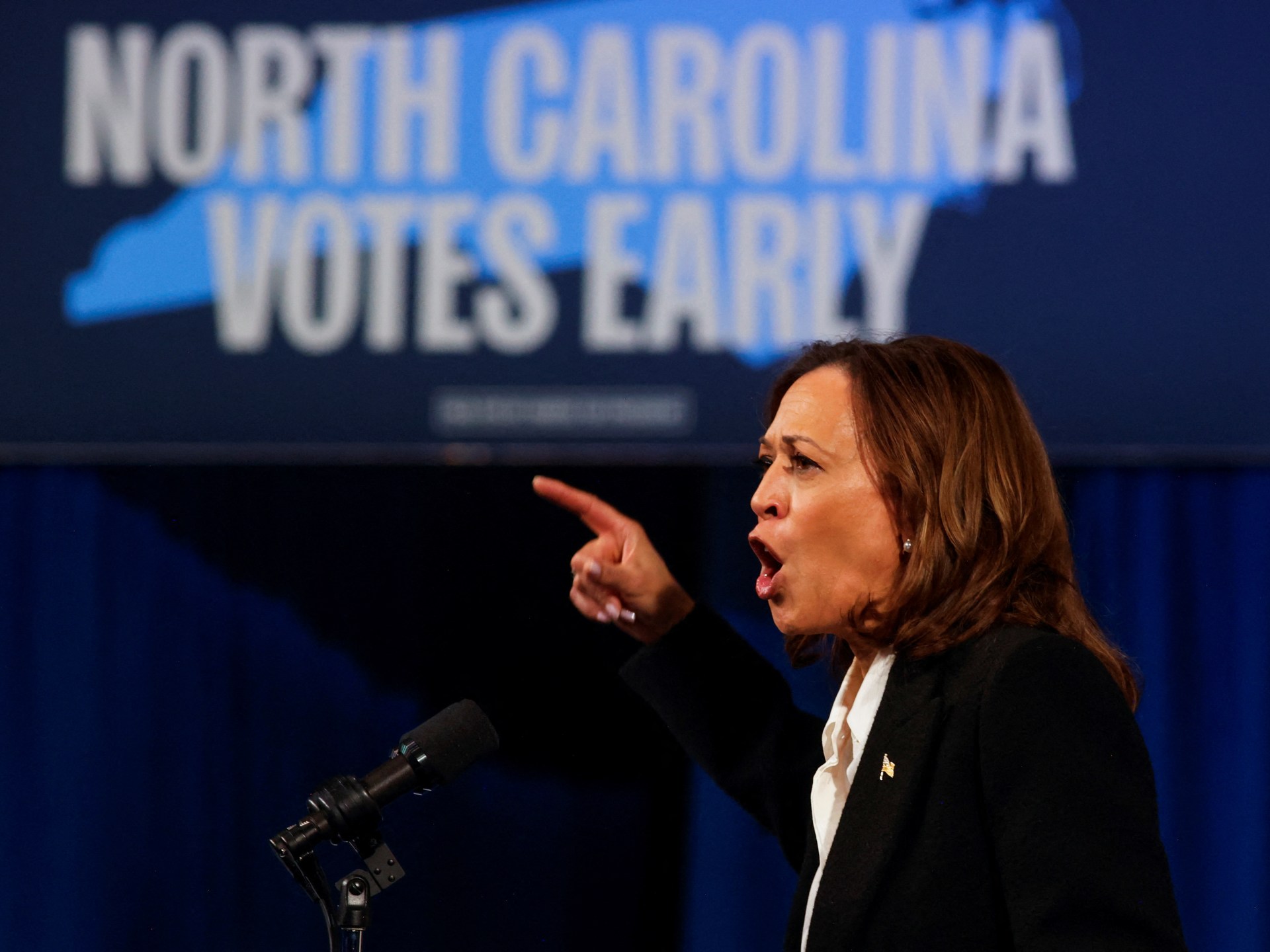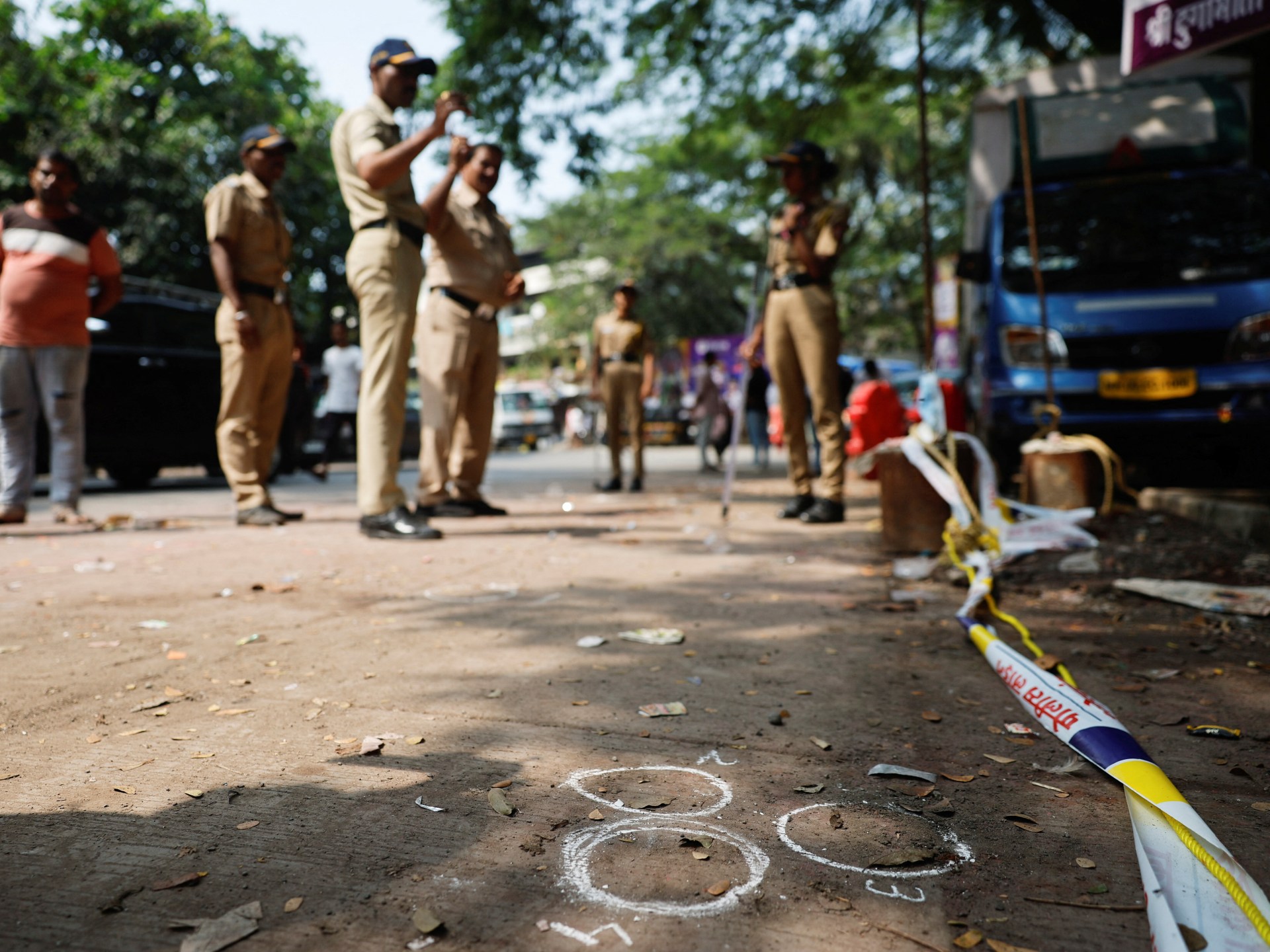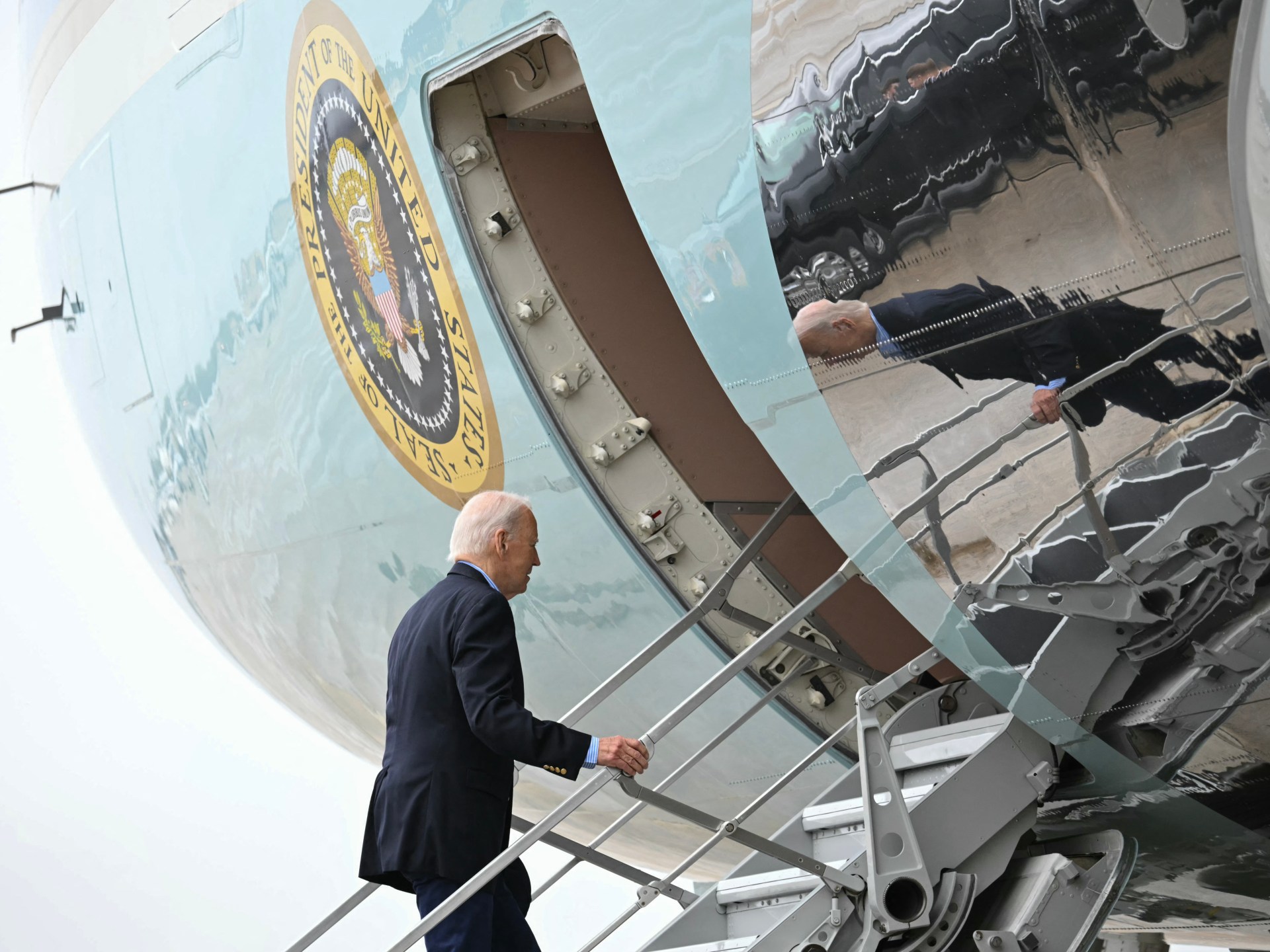

United States Vice President Kamala Harris has tried to stem waning support from Black men in an increasingly tight presidential race by unveiling a series of economic proposals aimed at empowering and driving them to the polls.
Harris, the Democratic candidate in next month’s election, introduced an “opportunity agenda for Black men” on Monday that is meant to give the demographic more chances to thrive as she works to energise a key voting bloc.
The proposals include $1m in forgivable small business loans and a promise to legalise recreational marijuana and ensure Black entrepreneurs have access to the new industry.
The announcement comes as the Harris campaign has grown increasingly concerned with slipping support from Black men just weeks before she takes on Republican Donald Trump in the election on November 5.
According to recent polls, 70 percent of Black male voters said they would support Harris — down from 85 percent who supported US President Joe Biden in the last election four years ago.
Younger Black men, in particular, have been steadily turning away from the Democratic Party, frustrated that their experiences are not reflected in policy as much as those of other groups.
It’s not clear how many of those voters would turn to Harris’s rival, Trump, or simply sit out the election. The former president has been courting Black voters by saying they stand to lose jobs to migrants crossing the border – and promising a crackdown on immigration.
More than a quarter of young Black men say they would support Trump in the election, according to a recent poll by the NAACP, one of the country’s largest Black civil rights organisations.
In a statement, the Harris campaign said “Black men have long felt that too often their voice in our political process has gone unheard and that there is so much untapped ambition and leadership within the Black male community”.
Other proposals introduced by the campaign include boosting access to the cryptocurrency industry for Black Americans and launching a national health equity initiative focused on Black men that addresses diseases like sickle cell anemia, which disproportionately affects the community.
Cedric Richmond, co-chair of the Harris campaign and a former Louisiana congressman who is Black, said Harris wants to build an economy “where Black men are equipped with the tools to thrive: to buy a home, provide for our families, start a business and build wealth”.
If elected, Harris would be the second Black president and first woman in the office, even as she has sought to downplay her identity on the campaign trail.
The vice president’s support from Black women remains strong, at about 83 percent.
But last week, former President Barack Obama, one of the Democratic Party’s most popular figures, issued an urgent call for Black men to drop “excuses” and vote for Harris, suggesting that the lacklustre support among some may have to do with sexism.
Some Black men, Obama said, “aren’t feeling the idea of having a woman as president”.
“I’m sorry, gentlemen. I’ve noticed this, especially with some men who seem to think Trump’s behaviour – the bullying, and the putting people down – is a sign of strength. I am here to tell you that is not what real strength is,” he said at a rally in Pennsylvania.
“Real strength is about helping people who need it and standing up for those who can’t always stand up for themselves”.
But some Black people took offence at Obama’s remarks. “It’s wrong to single out Black men when Black men are the most loyal male voting block for Democrats,” Nina Turner, a senior fellow at the Institute on Race, Power and Political Economy, said on social media.
Harris has told campaign staff that they need to do more outreach to Black men, including rallies and events that put them centre stage.
But while the new plans are intended to cater to Black people, she is seeking to emphasise how her economic proposals benefit all men.
The campaign has also been working to increase support among other male voting blocs, including Hispanics, by founding the group “Hombres con Harris” – “Men for Harris”, in Spanish.
As her campaign has done with the group, Harris’s team plans to organise gender-specific gatherings.
That includes “Black Men Huddle Up” events in battleground states featuring African-American male celebrities for watch parties for NFL and NCAA football games. The campaign says it also plans new testimonial ads in battleground states that feature local Black male voices.
On Monday, it began airing a new ad in Philadelphia that seemed aimed at addressing the sexism referenced by Obama.
“She’s had our back since day one,” said the ad’s narrator. “Let’s be honest and get a reality check. Women know how to make things happen.”
The debate over to what degree misogyny plays a role in some Black men not supporting Harris sidesteps a broader conversation on how Black men are engaged as full citizens in politics, argued Philip Agnew, founder of the grassroots political organisation Black Men Build.
“To be a Black man in the United States is to be invisible and hypervisible at the same time, and neither one of those is a humanising viewpoint,” Agnew said, adding that Black men he has spoken with have expressed exasperation towards politics, a sentiment shared by many Americans.
“The Black men I know are incredibly concerned with the lives of our families and our communities.”
Related News

Nonstop Israeli bombardment in Beirut, Lebanon as Hezbollah leader mourned

Muslim politician in India’s Maharashtra shot dead weeks before state polls

Press groups condemn Israel closing Al Jazeera office in Ramallah


